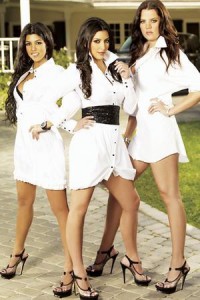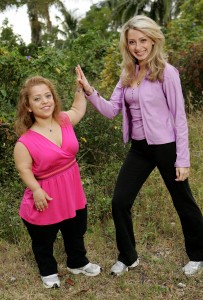Kelefa Sanneh has a thoughtful essay in the New Yorker about “reality television,” how it developed, why it fascinates us, and how “real” it really is. From the Loud family to “Jersey Shore,” they are based on the idea of peeking into the lives of real people in their homes and with their friends and families or putting them in highly artificial situations to see how they react. Whether a “glamorous competition” or a “homely documentary,” “reality shows still provide a fat target for anyone seeking symptoms or causes of American idiocy; the popularity of unscripted programming has had the unexpected effect of ennobling its scripted counterpart.”
Sanneh discusses serious, even scholarly books about reality television. Jennifer L. Pozner in Reality Bites Back: The Troubling Truth About Guilty Pleasure TV says that while they may appear to portray extremes and transgressive behavior, reality shows reinforce particular social norms. The greedy are punished. The deserving are rewarded. The lost are found and the lesser are made more. Sanneh finds some of this analysis reductive, noting that “one of the form’s greatest strengths” is that its stars “unlike their scripted counterparts, outlive their shows, and sometimes find ways to defy them.”
says that while they may appear to portray extremes and transgressive behavior, reality shows reinforce particular social norms. The greedy are punished. The deserving are rewarded. The lost are found and the lesser are made more. Sanneh finds some of this analysis reductive, noting that “one of the form’s greatest strengths” is that its stars “unlike their scripted counterparts, outlive their shows, and sometimes find ways to defy them.”
Perhaps because it is more focused, Makeover TV: Selfhood, Citizenship, and Celebrity by Brenda R. Weber, a professor of gender studies at Indiana University, is better able to support its conclusions.
by Brenda R. Weber, a professor of gender studies at Indiana University, is better able to support its conclusions.
Weber sees in these makeover programs a strange new world—or, more accurately, a strange new nation, one where citizenship is available only to those who have made the transition “from Before to After.” Weber notices that, on scripted television, makeovers are usually revealed to be temporary or unnecessary: “characters often learn that though a makeover is nice, they were really just fine in their Before states.” On reality television, by contrast, makeovers are urgent and permanent; “the After-body, narratively speaking, stands as the moment of greatest authenticity.” We have moved from the regressive logic of the sitcom, in which nothing really happens, to the recursive logic of the police procedural, in which the same thing keeps happening—the same detectives, solving and re-solving the same crimes.
Of course there is no such thing as “reality” television. The camera angles, the selection of shots, the music, the pacing all influence our reaction as audience members. And the Heisenberg principle states that molecules behave differently when they are observed. So do people. The people who are supposed to be so ordinary, so “real” become celebrities. “Jersey Shore’s” Snooki, whose primary occupations seem to be drinking and tanning, was in the headlines for getting a higher speaker’s fee for a recent college appearance than the distinguished poet Maya Angelou. This was shortly after Snooki was in the headlines for being in a brawl. Kate Gosselin went from being just another mom with a few more kids than most to getting Jennifer Aniston-style coverage when her marriage broke up (for reasons not unrelated to the intense media pressure and shock of “stardom”). The smart and lucky ones get book deals and product lines. Others do not do as well. That is one part of reality television that is really real.






